New York has finally legalized cannabis. For those that want to get involved in a projected multi-billion dollar industry, many wonder, what are my options aside from opening up a dispensary? We will discuss the various cannabis businesses that allow you to sell bud that are not dispensaries or large industrial grows.
Starting a cannabis delivery service business is an excellent alternative to the traditional route of opening a dispensary, especially if your starting capital is less than $100,000; however, you intend to get 30% plus net profit. Whether you are operating in New York City, where most (black market) bud is acquired via delivery service, or in the suburbs, where many consumers may want the discretion of delivery while avoiding being seen at “the weed spot.” This cannabis business affords you an excellent opportunity to provide 1-on-1 service to your customers.
Creating a Cannabis Delivery Business will require a plan to understand how to execute your business objectives. Then, you can use it to monitor progress and hold yourself accountable; it’s a foundational tool for recruiting talent, attracting future investors, and expanding your business.
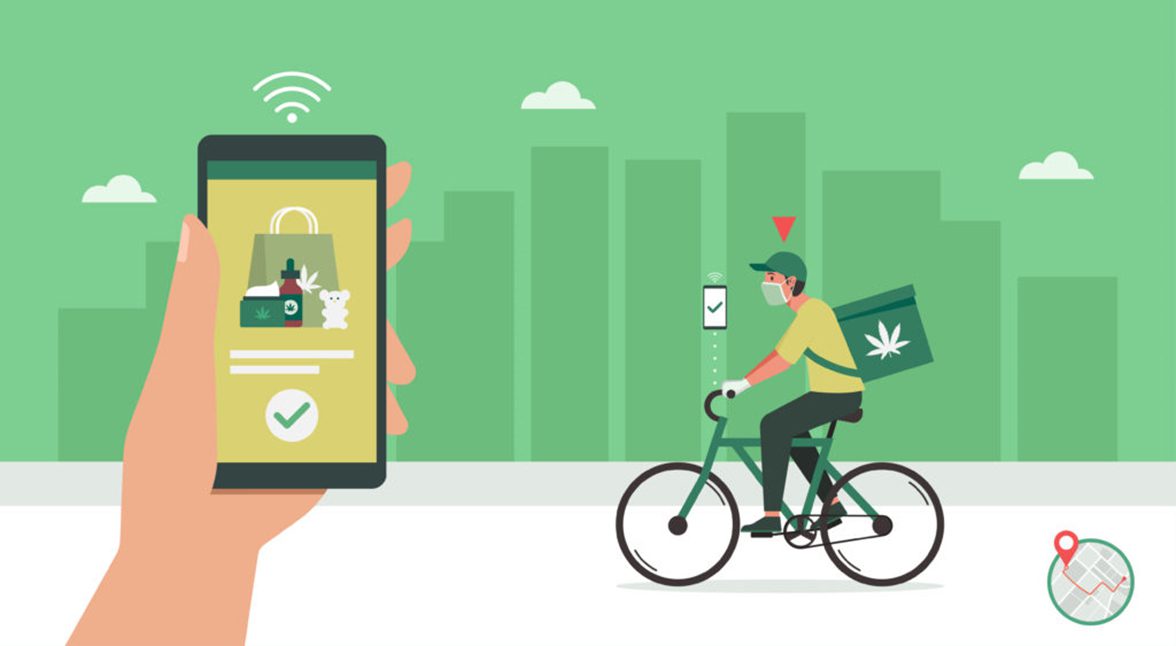
Licensing
Cannabis delivery services are legal as part of dispensing (Business to Consumer) or between licensed premises by a licensee or licensee representative in most states. A regulatory example that may factor into your business operation, some states require retailers to receive approval from the Cannabis Commission before making deliveries and may not carry or transport at any one time more than $3,000 in retail value worth of items designated for retail delivery. You need to learn the cannabis delivery approval process and requirements for your state, city, and county.
It isn’t necessary to lease or buy a store to keep your stock in order to start a cannabis delivery service, but it is essential to have a location that is large, safe, and easily accessible. Make sure you have enough product to fulfill all anticipated orders. Maintaining a streamline of products is essential in the beginning. Even though New York residents have been consuming cannabis for decades, the market isn’t as sophisticated as California, Colorado, and Oregon. Products such as shatter, wax, tinctures, capsules may require more time to develop; we suggest holding off on these.
Most customers who use delivery services tend to know what they want. An excellent streamlined flower selection and vape cartridges are a good start. Edibles are very popular; however, edibles infused in baked products have a short shelf life. So stick with hard candies and gummies when it comes to edibles.

Maintaining a consistent product offering is essential as well. Establishing relationships with various wholesalers will be vital. Understanding how your cannabis products are produced will help tailor some of your offerings to your customers. For example, some customers may want flowers and or extracts derived from organic growing methods. Some customers may desire cannabis with the highest THC content possible, while others are looking for something less potent.Â
Vehicle
A sturdy, reliable, and secure vehicle is essential, one that complies with any state laws regarding the use of a car for cannabis business purposes and with any vehicle registration laws:
(A) Capable of securing (locking) cannabis items during transportation;
(B) Equipped with an alarm system;
(C) Temperature controlled capabilities if perishable cannabis items are being transported.
In the case of New York City and, in particular, Manhattan, downtown Brooklyn and Queens, a driver and passenger tandem could help expedite daytime deliveries where parking is difficult while avoiding aggressive ticket cops. While regulations in New York and New Jersey have yet to be hashed out, chances are they will be similar to other state delivery rules, limiting retail “carry” value; thus multiple delivery drivers may be required to operate the business efficiently.
Medical Clients, Persons with Disabilities, and the Elderly
Cannabis delivery services are often the only option for many people, especially those who suffer so much they can’t get to a physical dispensary. Nonetheless, you’ll still have to register them just like any other cannabis business. Make sure that you establish good relationships with your local physicians and that you have the appropriate registration forms on hand. Also, make sure to check their medical cannabis license.
Cannabis is illegal under federal law, so state governments and online advertising platforms have restrictions on how companies can market the product.

The advertising policies of Google, Facebook, and Twitter prevent the promotion of cannabis sales. Facebook bans “illegal, prescription, or recreational drugs.” Meanwhile, Google prohibits ads that promote “substances that alter mental state for recreational use.” Instagram has taken the step of removing cannabis-related pages.
Traditional “old school” methods of marketing could go a long way. Placing postcard flyers in cafes, lounges, health and wellness centers, along with ads in locally printed publications, could prove to be very affordable and effective. Handing out simple business cards and word of mouth are tried and true effective methods. The most successful delivery services provide good quality cannabis, are punctual, and are courteous and knowledgeable.
Lastly, if you haven’t done it already, you should develop a website and brand, including a mission statement, logo, color palette, user persona, etc. Despite all the buzz, it’s far from too late to get started. New York will begin slowly when issuing licenses. In addition, the industry on most levels is fragmented and still in its infancy; opportunities abound!
The small business license for adult-use marijuana cooperatives or micro-businesses is one of the most exciting parts of New York recreational marijuana legislation. With the microbusiness license, a business can grow, process, distribute, and dispense its adult-use cannabis, similar to how craft breweries grow hops to make their beers. It is expected that New York will prioritize social and economic equity applicants, with a goal of up to 50%. Micro Business licenses will be inspiring because it’s one of the only ways in New York that you’ll be able to have your hands in everything in your shop, from growing the plant to getting it on the shelf. Like a craft brewery, it’s an opportunity that we haven’t seen yet in other states. In California, Nevada, Oregon, or Colorado, you mostly see traditional dispensaries.
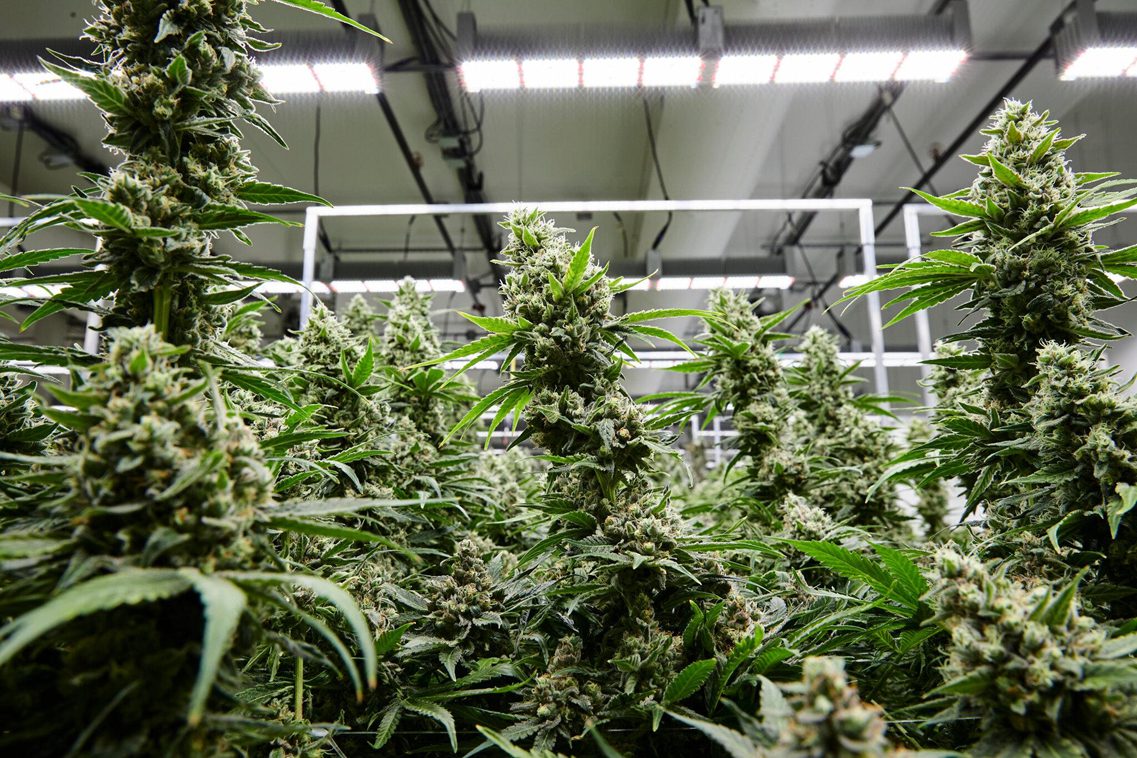
The cannabis licensing laws define a microbusiness as a cannabis business with strong connections in their respective state subject to a specific size and operation restrictions. As a result, there will be a significant number of licenses for microbusinesses in the cannabis industry. Therefore, microbusinesses will only compete with one another during the application process instead of directly competing with larger, established businesses. As a result, entrepreneurs seeking to enter the cannabis industry will have a way forward without getting shut out by multi-state operators (MSOs) once New York begins accepting applications.
To qualify as a microbusiness, the business should meet the following criteria: keep in mind these stipulations are subject to change.
- All business owners must be current state residents and must have resided there for the past two consecutive years.
- At least 51% of the owners, directors, officers, and employees must be residents of the municipality where the business will be located (or at least an adjoining municipality)..
- The company can have no more than ten employees..
- The business operating space can be no more than 2,500 square feet (and, in the case of cultivators, can have a height of no more than 24 feet)..
- There are various limitations on the monthly volume of cannabis that the business can be involved in, which vary somewhat depending on the type of license being applied for (in some cases limits of 1,000 cannabis plants per month, or limits of 1,000 pounds of usable cannabis per month or other cannabis products or resin, or other similar restrictions)..
- Conversely, no owner, director, officer, or other individuals with a financial interest and decision-making authority in any other cannabis business (whether that business is a microbusiness or not) can have any financial interest in a microbusiness..
The start-up cost for a Microbusiness can range anywhere between $250,000-$400,000, with real-estate cost being the single most significant variable. The two most viable options to grow cannabis under a Microbusiness license are indoor grows and greenhouses. Indoor cultivators produce year-round and can generate between 4 and 6 harvests per year. Greenhouse cultivators combine elements of both outdoor and indoor grows – exploiting natural light, while leveraging infrastructure and technology – to produce between 1 and 4 harvests per year, though sophisticated, well-equipped greenhouses can run year-round on schedules analogous to indoor production; a properly ran greenhouse can also save you approximately 30% or more on your light bill.
Build out, rent, growing supplies, labor, and electricity are all significant upfront costs that come fast and hard before you come upon your first harvest and begin to recoup some of your expenses. It’s vital to have working capital available as well to address unexpected shocks to your grow operation, like faulty mechanical issues that could harm your grow operation.
The amount of production will depend on the strain chosen, the cultivation method used, and the quality of the environmental conditions. Revenue will be determined by the weight and variety of marijuana grown. Although the most potent marijuana has the highest retail price, it does not necessarily yield the most. Then some strains produce an abundant amount of flower but are not as potent or as fragrant, so they don’t command the highest price per pound. Make sure you research your choice of strain and the source of those genetics.
A Microbusiness license shall authorize the limited cultivation, processing, distribution, delivery, and dispensing of their own adult-use cannabis and cannabis products. However, a 2500 square foot grow facility can yield hundreds of pounds of high-quality cannabis a year. Within your premises, you will get to choose the variety of strains to grow, along with a plethora of ways to present your cannabis products, whether as cured flower, oil, wax or shatter, hash, or infused edibles, to name a few. Consider a microbusiness like a mini “full vertical” operation, farm to table, and its many iterations all in one location.
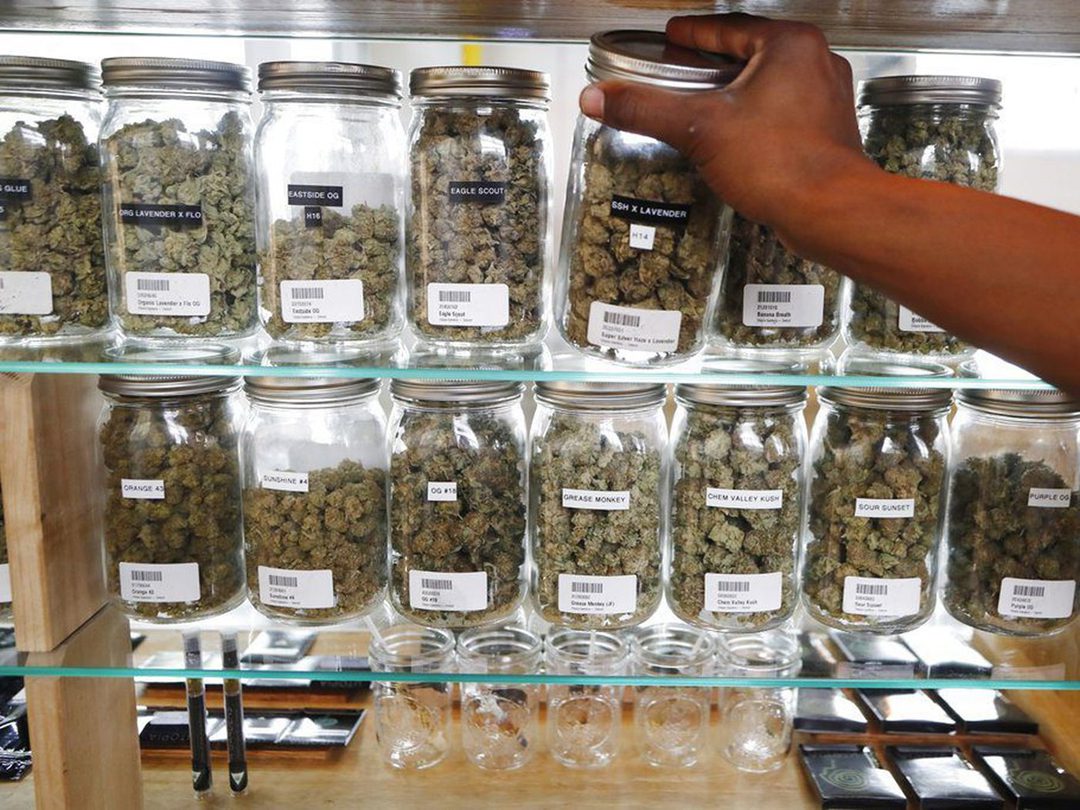
Keep in mind, the allure of growing a variety of cannabis strains is highly tempting; however, the best growers typically focus on a few within their grow. Many strains have varied feeding regimes, harvest schedules, growth rates, and environmental requirements for optimal production. Imagine growing an OG Kush, Super Silver Haze, Trainwreck, Blue Dream, Girl Scout Cookies, and Wedding Cake all in one location; a logistical nightmare, to say the least, that in the end could jeopardize the business profitability. Also, it takes growers’ time, i.e., multiple harvests or a couple of years, to truly learn how to grow a particular strain optimally and to discover the best phenotype within that strain. However, therein lies the sizzle and opportunity, which is the “craft” of growing a strain you’ve mastered to a tailored taste and high. Add to that an exclusive strain that no one else has, and now you’re cooking with grease!

Microbusinesses that meet the state’s criteria for being minority-owned, women-owned, or disabled veteran-owned will be given special consideration in the application process.Â
There is no requirement that any micro business must fall into one of these groups. Still, if your micro business does, you may benefit from the application process associated with this type of ownership preference, on top of your benefit as a microbusiness.
The law identifies certain municipalities as “impact zones” (those with high rankings in minor cannabis crimes, crime rate, and unemployment). Businesses that intend to operate within the impact zones will receive special priority in licensing applications. A company with an employee who has lived in the impact zone for at least three years before filing for a permit will be given additional priority. A micro business does not have to have an impact zone nexus, but it may enhance its license application if it does.
Despite all the attention that dispensaries are getting as the first expected cannabis businesses to open, consumption lounges seem to be the more obvious turn-key, built-in ready for success model. A classic example of the last should be the first. For comparative purposes, dispensaries are like liquor stores, and consumption lounges are more like bars or nightclubs. Like alcohol, most individuals who consume cannabis like to do so socially. Whether buying bud at a legal dispensary or from the black market, an individual’s first instinct upon purchasing their “weed” is to roll it, light it, smoke it, then pass it!
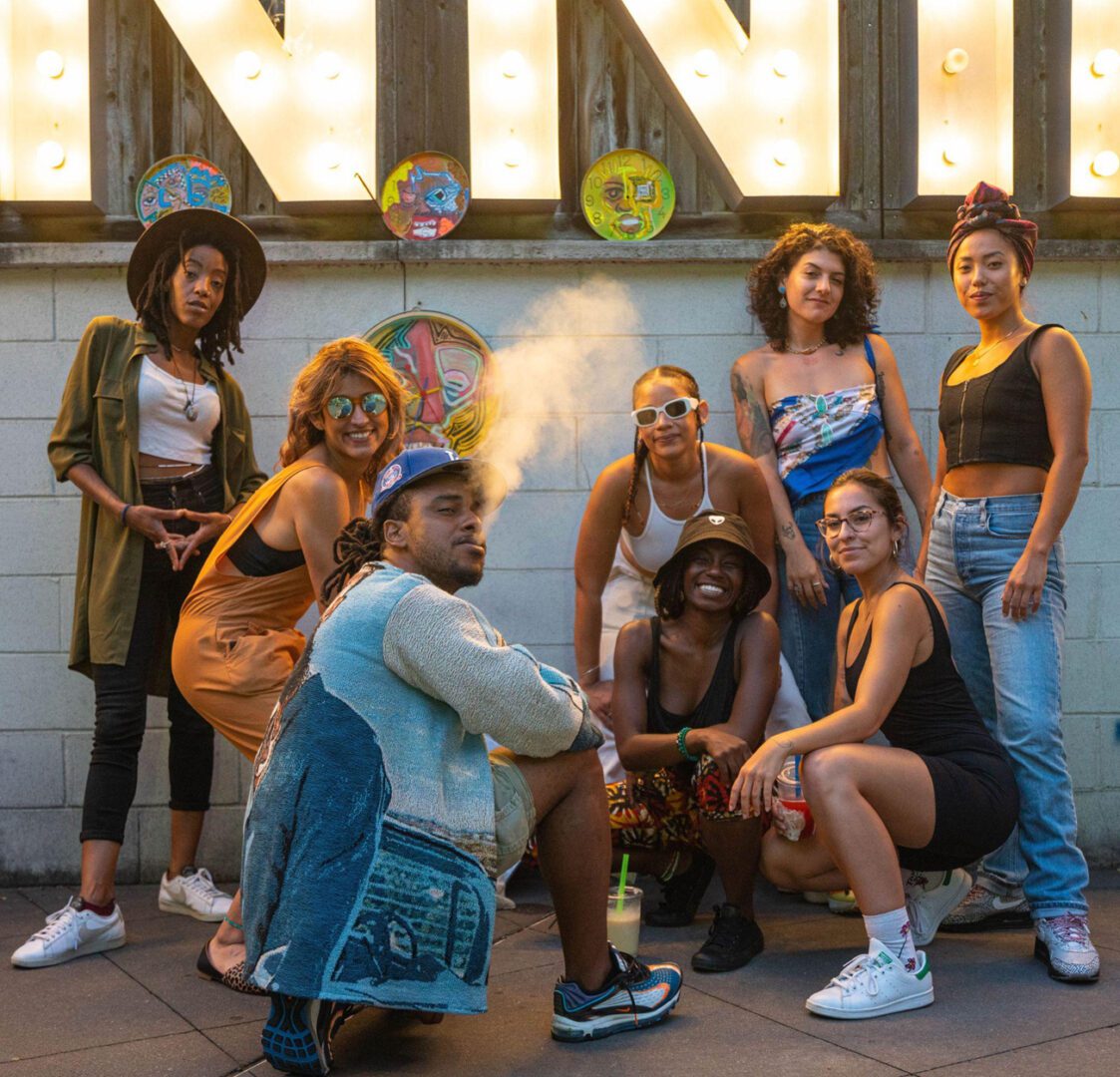
Imagine a relaxed setting, where rather than throwing back shots, you’ll have your customers share a vape pen or sample a cannabis confection from a local licensed bakery. This week, trivia night is being held in the same lounge area where comedy night was held last week. Customers can ask a “budtender” about a new type of bud at the counter or order table service (complete with roll ) from your reserved booth.
One crucial element that could lead to further social acceptance of cannabis consumption has been forgotten by many: safe spaces for consumption. It has long been popular for people to share in cannabis consumption. Cities across the country are littered with bars and restaurants serving alcohol, so why is progress for consumption lounges so slow?Â

The answer is simple, politics as usual! A consumption lounge is viewed with extreme trepidation in our discussion with various local elected officials in New York City. The optics of a place where people are “getting high” seems to send chills down the backs of local community boards.
New York has reached an agreement that includes stand-alone, regulated cannabis consumption lounges. The NY Times said that these places would be “club-like lounges or consumption sites” where marijuana, but not alcohol, can be consumed. With revenue forecast to reach nearly $6 billion by 2027, New York leaves room for others to enter the regulated cannabis market without growing or packaging the plant.
Another excellent option for those that want to start a cannabis business is the Adult Use Processor business. This is a perfect opportunity for individuals that have a strong interest in designing cannabis products with a background in branding and marketing. Products include but are not limited to creating packages and labels for flowers and buds, vapes, topical creams, candles, edibles, including food items like honey, teas, coffee, and cooking oil, to name a few.

Individuals with experience in branding, digital marketing, content marketing, and sales will find the Adult Use Processor business tantalizing as well.
1. A processor’s license shall authorize the acquisition, possession, processing, and sale of cannabis from the licensed premises of the adult-use cultivator by such licensee to duly licensed processors or distributors. A person holding an adult-use processor’s license may apply for and obtain one distributor’s license solely for the distribution of their own products.
2. In addition to blending, extracting, infusing, packaging, labeling, branding, and making or preparing cannabis products, the process of processing shall include extraction, infusion, and packaging. Cannabis cultivation is not part of the processing.
Like all licenses, except for a full vertical license, which will be extremely limited, no adult-use cannabis processor shall have a direct or indirect interest in any other adult-use cannabis business.
To get started, one should begin a cannabis brand if you haven’t already. Like any brand, you need a logo, slogan, a targeted niche audience, and a website domain, to name a few. It’s essential to generate traffic to your website and followers on social media, even if you don’t have an actual product to sell. Speak about your inspirations and tell stories.

Creating prototypes for products you aspire to sell will help A/B test those products to your targeted audience. In addition, someone with experience in digital marketing understands that design and copy affect click-through rates and conversions. Too often, aspiring brands manufacture a ton of products, then run out of funds to develop an effective marketing strategy. Yet often, it’s the design, branding, and messaging that’s not resonating more times than not.
Once your brand has established a good amount of traffic to your website and a good amount of followers, then go back to your data and see where you have the most engagements and best click-through rates. That data will help you figure out your next course of action when developing your first piece of merchandise for sale.Â
Nursery licenses permit licensed adult-use cultivators and cooperatives to produce, sell, and distribute clones, immature plants, seeds, and other agricultural products for the purpose of planting, propagating, and cultivating cannabis.
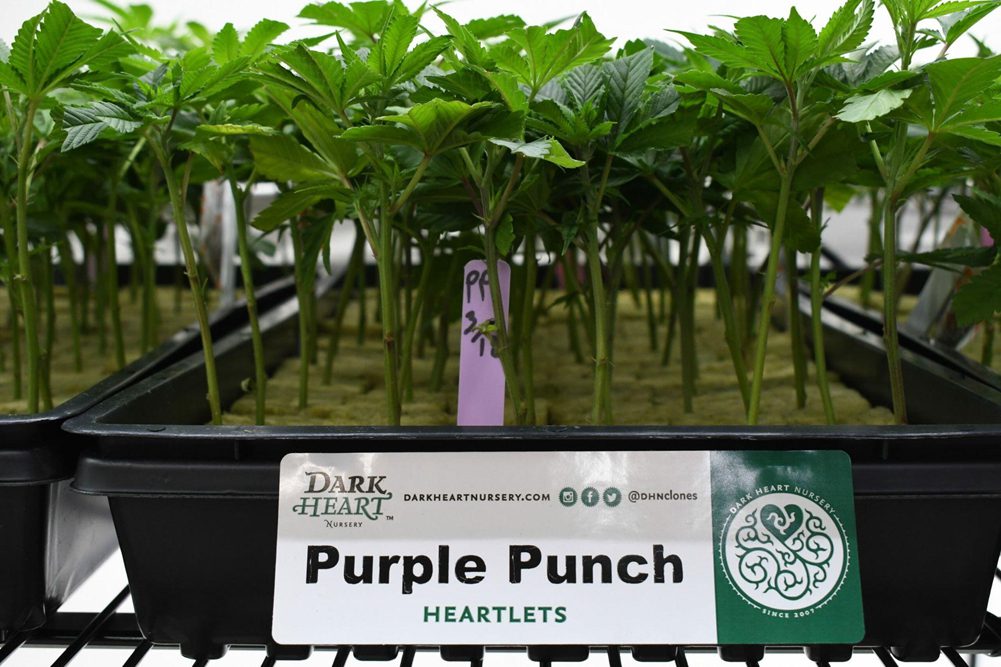
An advantage of opening a cannabis nursery is that, as an entrepreneur, you can concentrate on one aspect of cultivation. As a result, your nursery can produce consistent genetics. The best growers are not necessarily the best breeders. Specialized nurseries can hone in on a specific strain of cannabis to perfect it. Clone operations must cull out weak plants so that growers can obtain superior genetics and healthy starter plants.
Compared to traditional growers, nurseries typically have a much smaller footprint and a higher revenue per square foot.
You can have anywhere from 15-50 mother plants within a room of about 1,000 square feet, depending on their size and how you use the space. There are usually 15-30 cannabis clones produced by a mother plant every month, but it can fluctuate greatly according to how well it is maintained and how well it can regenerate new growth. This means you will have up to 1,200 clones per month available for sale. Other individuals can pull significantly more clones from a room this size.
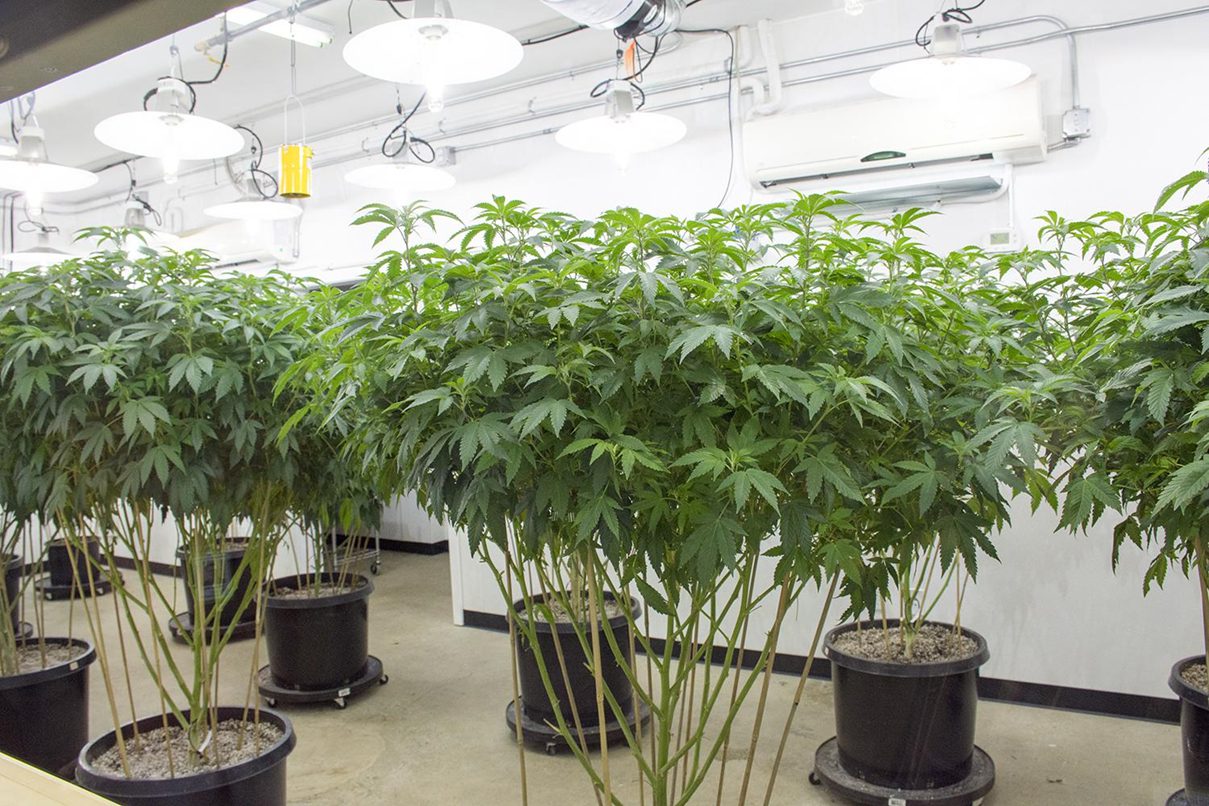
On the business side of the equation, clones can be sold to growers at $10-30 per clone.
The range is wide because it depends on a few factors:
- How many clones are purchased in one order
- How frequently the grower buys clones
- How in-demand a particular cultivar is
- The number of mother plants you have per strain
- Your reputation
The reputation of your nursery is the most important aspect of your income. You are most likely to succeed in this highly competitive market if you have strong, fair business relations, not if your strains have a high THC/CBD content. Although high THC/CBD content is helpful and lends weight to your reputation, the business is more relationship-based than most, so invest time, attention, and respect into your growers, and they’ll do the same for you.
In terms of expenses, there are a few costs to consider that depend on your location. The cost of real estate, licenses, utilities, labor, and marketing will vary depending on where you are located: for example, New York City nurseries will be more expensive than those in Monticello..
Additional sources of revenue that may be generated given your unique proximity include but are not limited to selling supplies such as pots, soil, lights, and specific nutrients that are amenable to specific strains, to name a few. Â
Initially, you may want to test your seeds and clones to verify their genetic quality while they have fully blossomed. Do written, photographic, and video documentation of the entire process. This allows you to show plants to growers with details such as their size and shape.
Some growers prefer short, broad plants, while others prefer tall, thin plants. Growing a seed to maturity allows growers to see, smell, and taste what they will produce. A certificate of analysis should be given to growers to prove the quality of their product.
For this purpose, you may require a different license, specifically for cultivation. Nurseries can be licensed in a variety of ways, based on their size and specifications.
Rest assured that the competition to acquire dispensary and grow licenses will be intense, with limited licenses to go around. Yet, the businesses highlighted may be as lucrative, yet many individuals might not be aware that these business structures exist or are viable. Thus, one might find acquiring these licenses easier because they do not draw as much attention from applicants. Last but not least, consult a cannabis attorney since many of these business regulations are subject to change.

